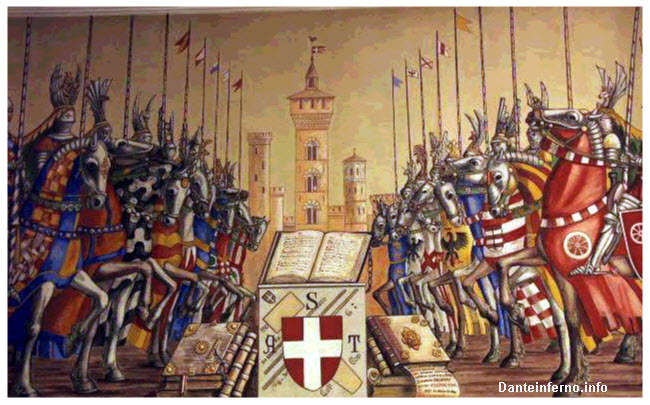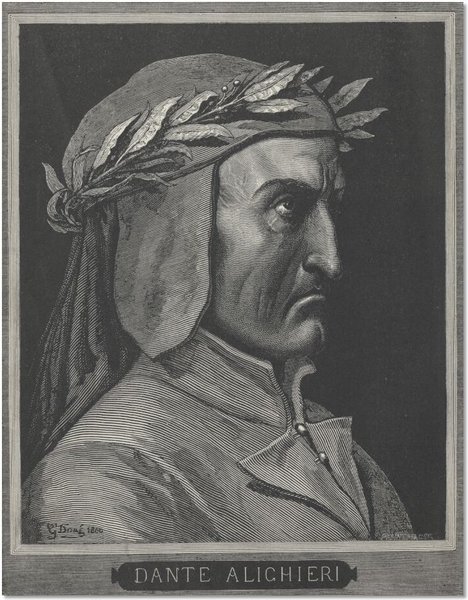
This page discusses the political factions known as The Guelphs and the Ghibellines. Conflict between these two groups led to civil war in the city state of Florence and the banishment of Dante from his home city.

GUELPHS AND GHIBELLINES were the names of two important political parties that contended for supremacy in Germany and Italy from the 11th to the 14th centuries. The conflict between these parties mirrored the struggle for supremacy between the Holy Roman Empire and the Pope, as well as various city states for supremacy in Italy and Germany.
The party names originated from two families known as the Waiblingen and Welf, who were rival parties in the German Empire, the latter being still represented in the ruling house of England. These names sprang into existence from the Battle of Weinsberg, which occurred between Emperor Conrad of Hohenstaufen and Welf in 1140.

The Welfs became known as Guelphs, receiving their chief support in the Italian cities of Bologna, Florence, Vienna, Modena, and Milan, while the Waiblingens took on the name of Ghibellines and were supported principally by the cities of Lucca, Pisa, and Arezzo.
During the conflicts many of the cities and communities changed in accord with the interests peculiar to different localities. In the main the Ghibellines supported the imperial authority of Germany in Italy, against that of the Pope, while the Guelphs were in opposition and supported the papacy. Toward the latter part of the 13th century the bitter feuds partook more of the nature of a personal warfare. After the 14th century both parties disappeared from history.
The conflict between these two factions was foughtt within Dante's Florence and like many prominent citizens, Dante picked sides. He belonged to the Ghiibelline party, which was opposed to the temporal power of the Pope in Rome who was not only a religious leader, but the leader of his own powerful country within Italy, the Papal States. When his political rivals, the Guelphs, gained power in Florence, Dante was exiled from the city forever; he died in Bologna. The Inferno, and the Divine Comedy was written mainly while Dante was in exile.